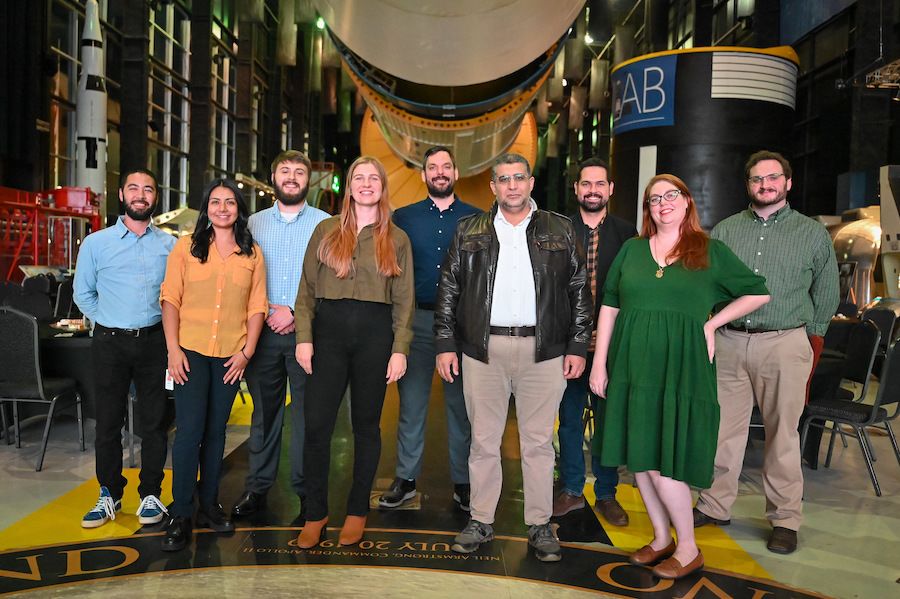Genomics-Assisted Plant Breeding to Feed the World

Food security, the ability to access safe and nutritious food at all times, is one of the most fundamental human needs. While grocery shelves in developed nations overflow with fresh, diverse options, the reality for many in developing countries is drastically different. Here, small, family-run farms are the backbone of the food system, with billions of people depending on smallholder farms for food and income.
This very reliance on small producers creates a precarious situation. Our changing climate disrupts weather patterns, leading to devastating droughts, floods, and unpredictable growing seasons. The emergence of new pests and diseases can wipe out entire harvests in a single blow. Operational costs to maintain a farm continue to skyrocket globally, causing many smallholder farmers to seek other jobs. Without the resources and technologies to adapt, these events leave families not only facing hunger but also robbed of their income and their quality of life.
In 2022, around 735 million people in the world faced hunger, according to The State of Food Security and Nutrition in the World 2023. In addition, approximately 29.6 percent of the global population, around 2.4 billion people, did not have constant access to healthy food. Ensuring food security for everyone on the planet is a monumental but crucially important undertaking. An emerging champion in the fight against food insecurity lies deep within the plants themselves in their genetic code.
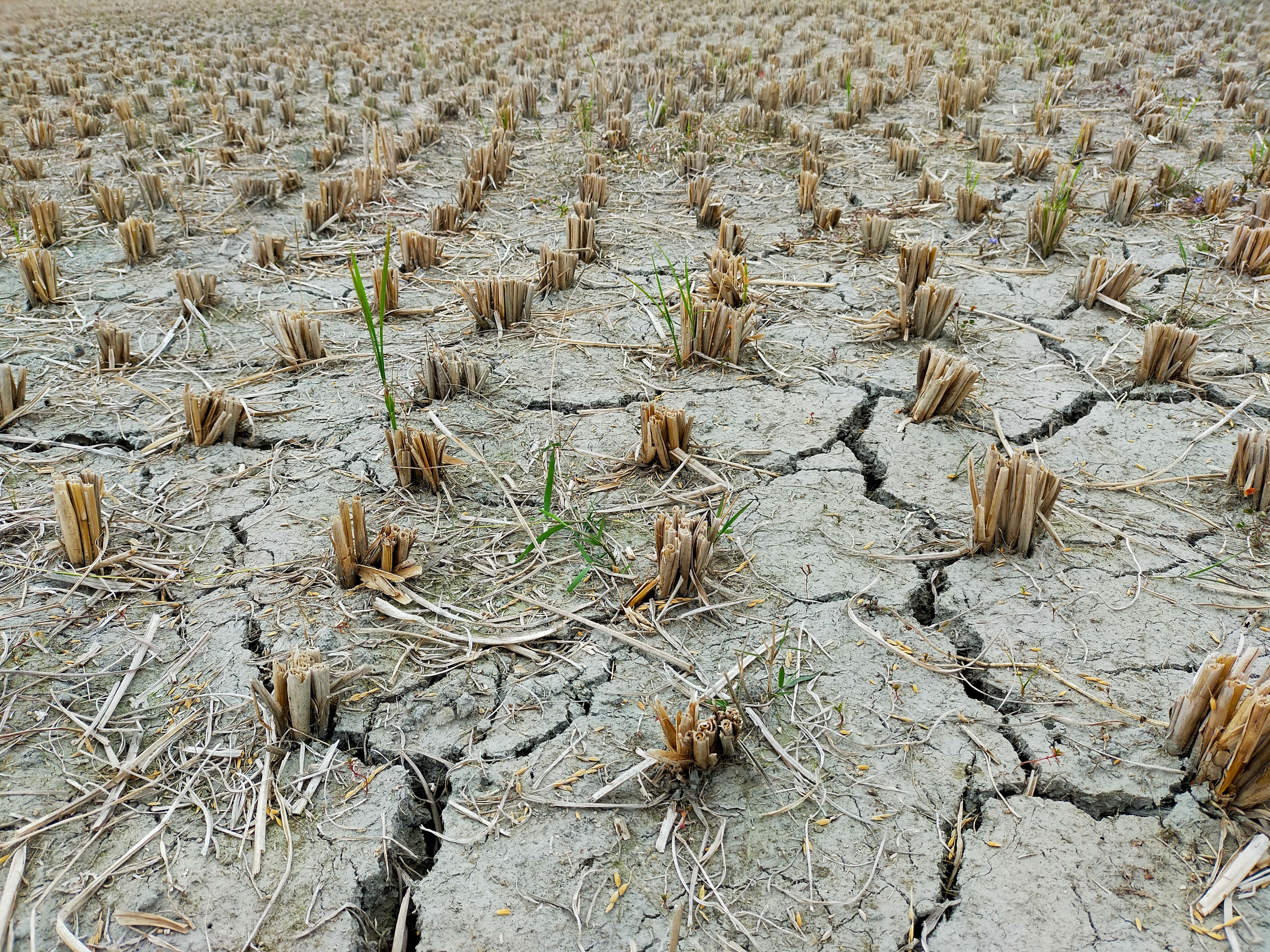
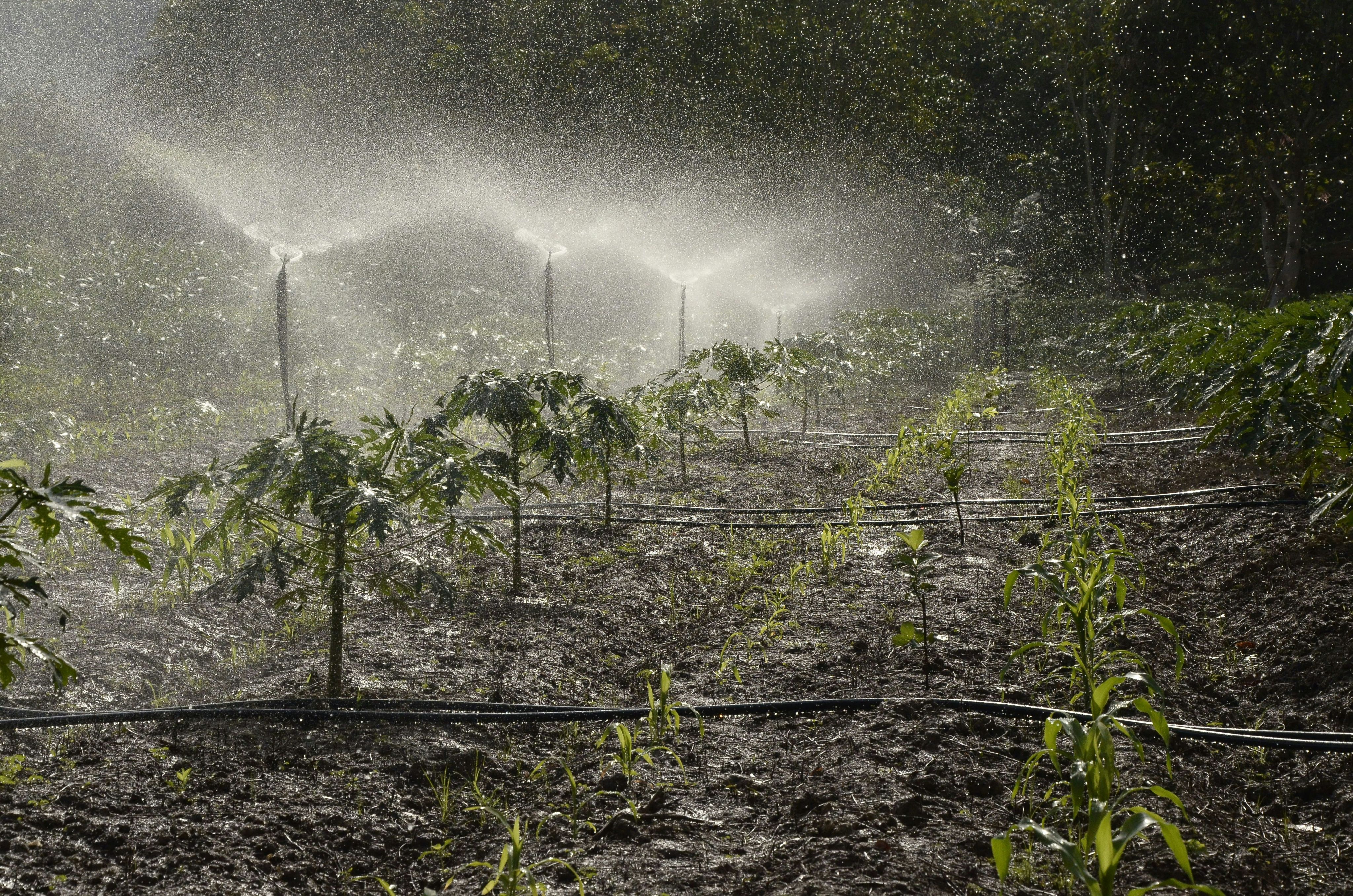

Our changing climate disrupts weather patterns, leading to devastating droughts, floods, and unpredictable growing seasons.
Operational costs to maintain a farm continue to skyrocket globally.
Genomic technology can help create more adaptable, resilient crops requiring less expensive inputs like water, fertilizers, and pesticides.
How can genomics help feed the world?
DNA is the molecule that serves as the blueprint for all living things. It's like a complex instruction manual encoded within the cells of an organism. DNA holds the genetic information that determines everything from the color and size of a plant to the diseases it is susceptible to.
Decades ago, scientists discovered how to read an organism’s DNA code using a technique called DNA sequencing. Sequencing methods have advanced dramatically over time, but at their basic level, DNA sequencing uses a machine to identify the order of the different DNA bases (called nucleotides). This is especially important because the specific sequence of nucleotides codes for instructions to build proteins, which are responsible for performing all of the functions in an organism.
By understanding the genetic makeup of plants, scientists can breed and develop stronger, more resilient crops that can withstand harsh conditions and fight off diseases. Imagine wheat engineered to flourish in arid regions, its roots reaching deeper for precious water. Or cassava, a vital source of calories in Africa, fortified with essential vitamins to combat malnutrition.
Genomics can introduce genes for pest resistance, protecting crops from devastating insects and fungi that devour billions of tons of food annually. Scientists can even improve the nutritional profile of crops, like engineering rice with higher protein content, creating a more complete meal from a single source.
Using targeted breeding and gene editing techniques, scientists have already developed plants that produce higher yields, require less water, and fend off disease. Genomics is making strides to create healthier, hardier, more adaptable crops to feed our populations in the face of changing environments.
This technology could be a game-changer for small-scale farmers, enabling them to grow more food and secure their livelihoods. However, many small-scale farmers, especially in developing countries, don't have the resources or knowledge to utilize genomic technologies.
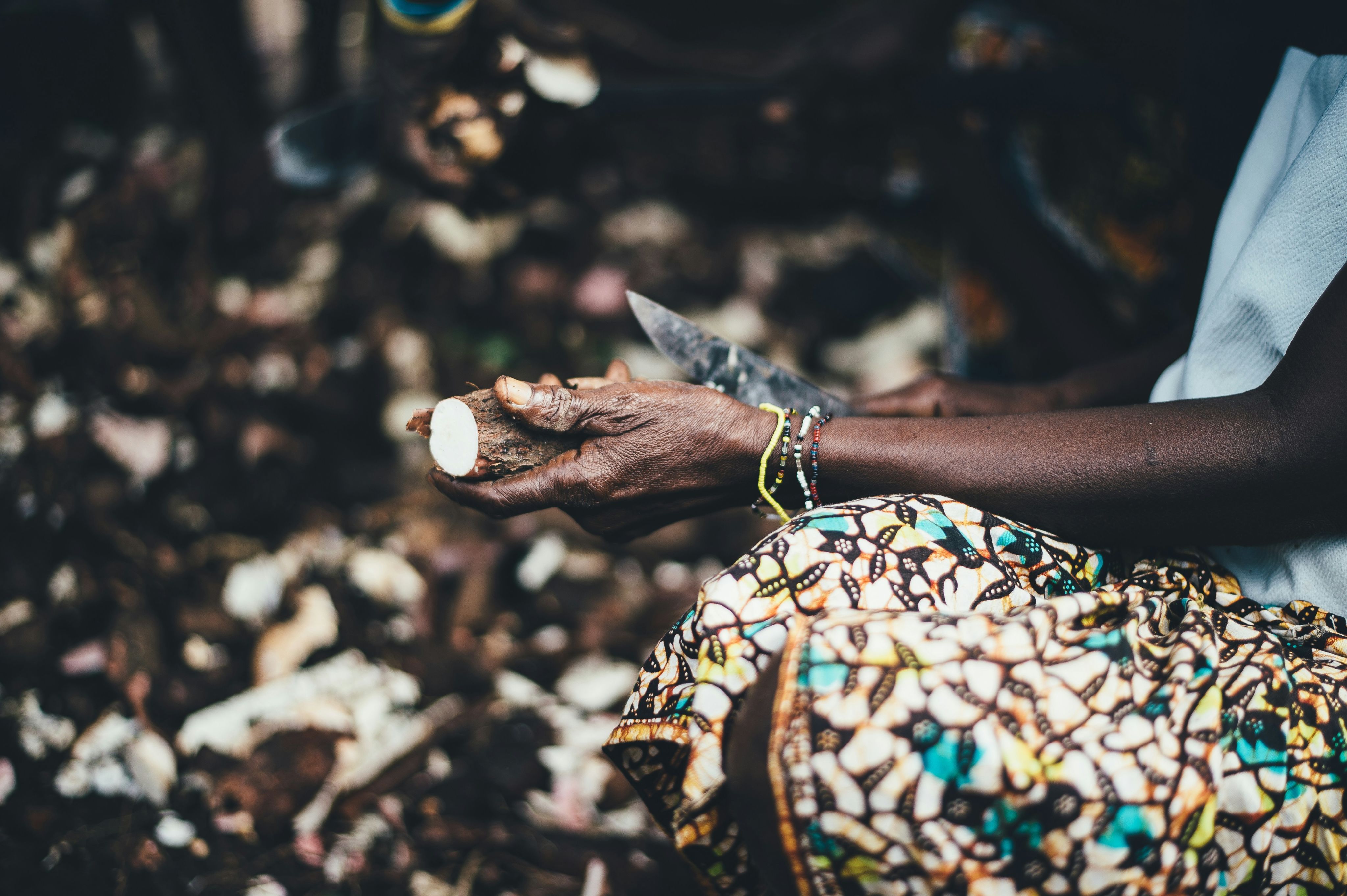
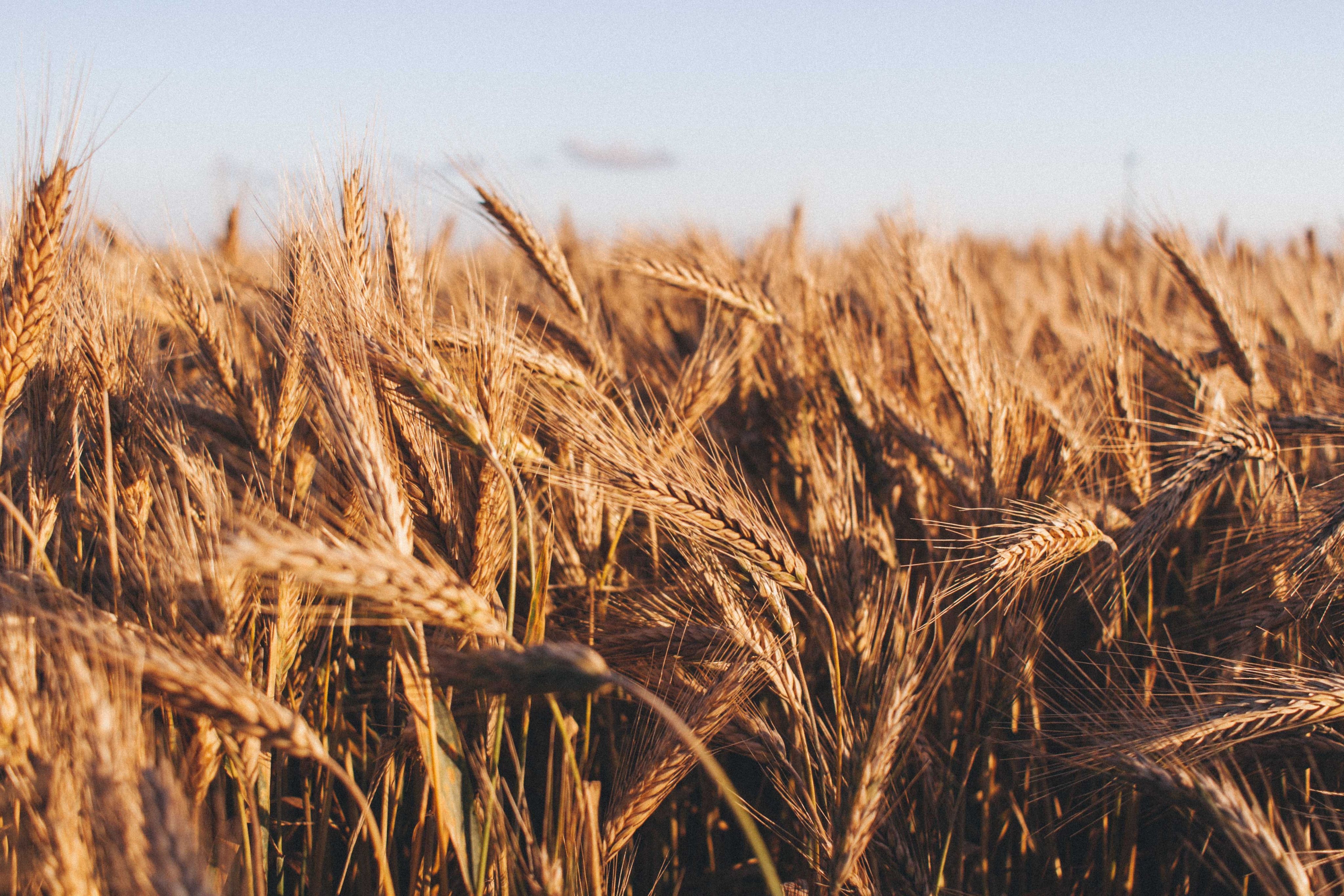
Developing genomic technology to improve peanuts
Researchers at the HudsonAlpha Institute for Biotechnology are applying genomics to combat some of our planet’s biggest problems, including food insecurity. The mission of Faculty Investigator Dr. Josh Clevenger’s Genome Innovation Lab is to help small and underserved breeding programs and farmers across the world introduce genomics into their breeding practices.
Traditionally, farmers and breeders use visual cues to breed plants, choosing plants that grow best, survive in the face of drought or pest infestation, or generally taste better. It can take several growing seasons to see meaningful changes in the plants. Dr. Clevenger and his lab use genomic technology to look at the plant's DNA and determine which DNA stretches are involved with specific traits, like drought tolerance or nutritional content.
“Traditional breeding takes a lot of time, and you can’t quickly pivot in the face of challenges, like changing climate or the emergence of pests. Coupling genomic information with traditional breeding allows breeders to more quickly incorporate meaningful traits into their existing crop lines more efficiently.”
Clevenger and his lab work to develop better computational tools to help identify genetic markers for the traits. This allows others to do quick genetic tests to determine if their plants have the valuable trait well before the plants grow to maturity. They have already developed a powerful tool called Khufu™ that helps quickly and inexpensively analyze whole genome sequencing data to identify regions of the genome that control valuable traits.
Members of the Genome Innovation Lab (Photo credit: Amy Weiser Clevenger)
Members of the Genome Innovation Lab (Photo credit: Amy Weiser Clevenger)
“Our goal is to create genomic sequencing tools that will enable small-scale breeders in rural communities across the world to quickly and affordably test their crop lines for valuable traits,” says Clevenger. “Genomic information is so critical for crop breeding, especially in the face of so many environmental changes, and we want to do our part to help democratize it so everyone can benefit from genomic-informed breeding.”
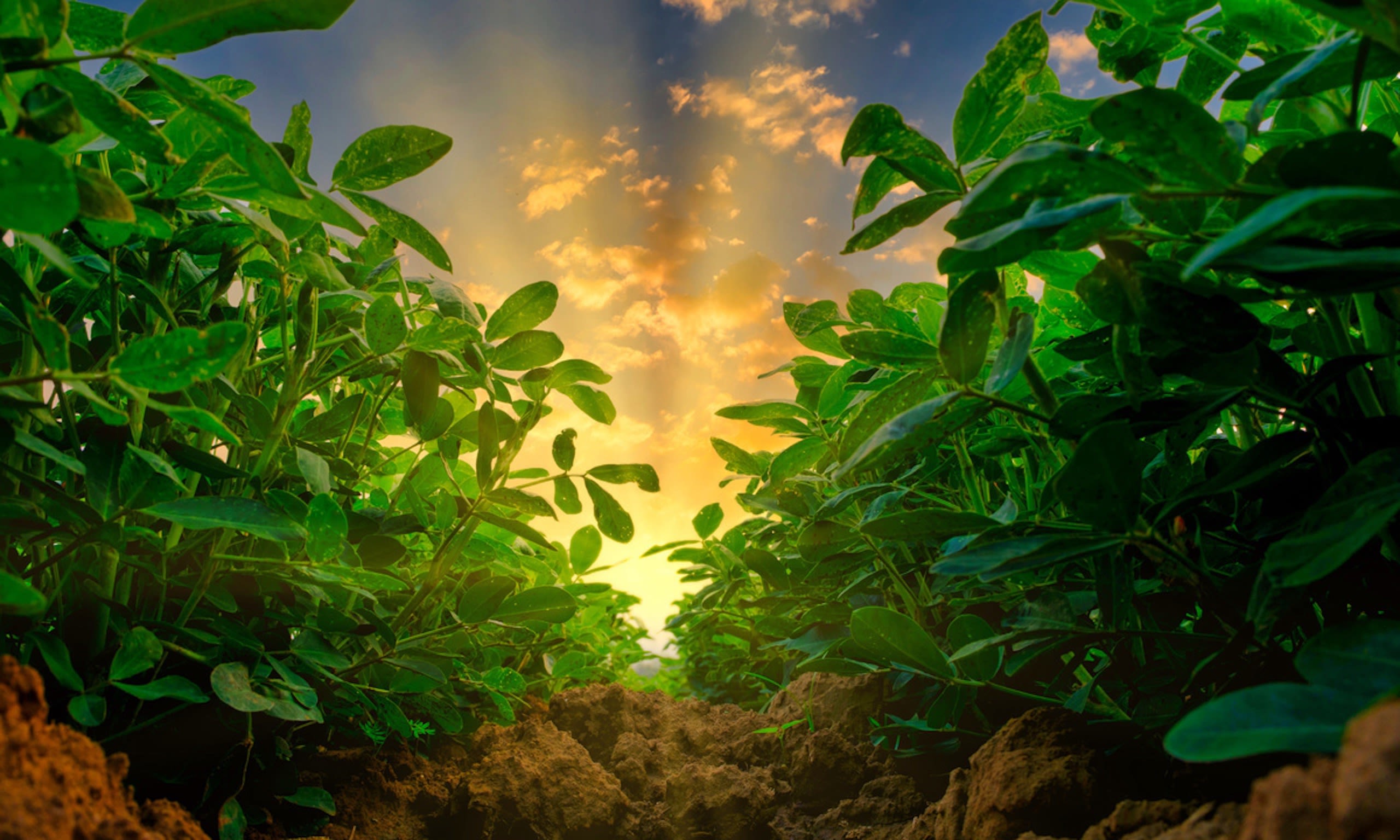
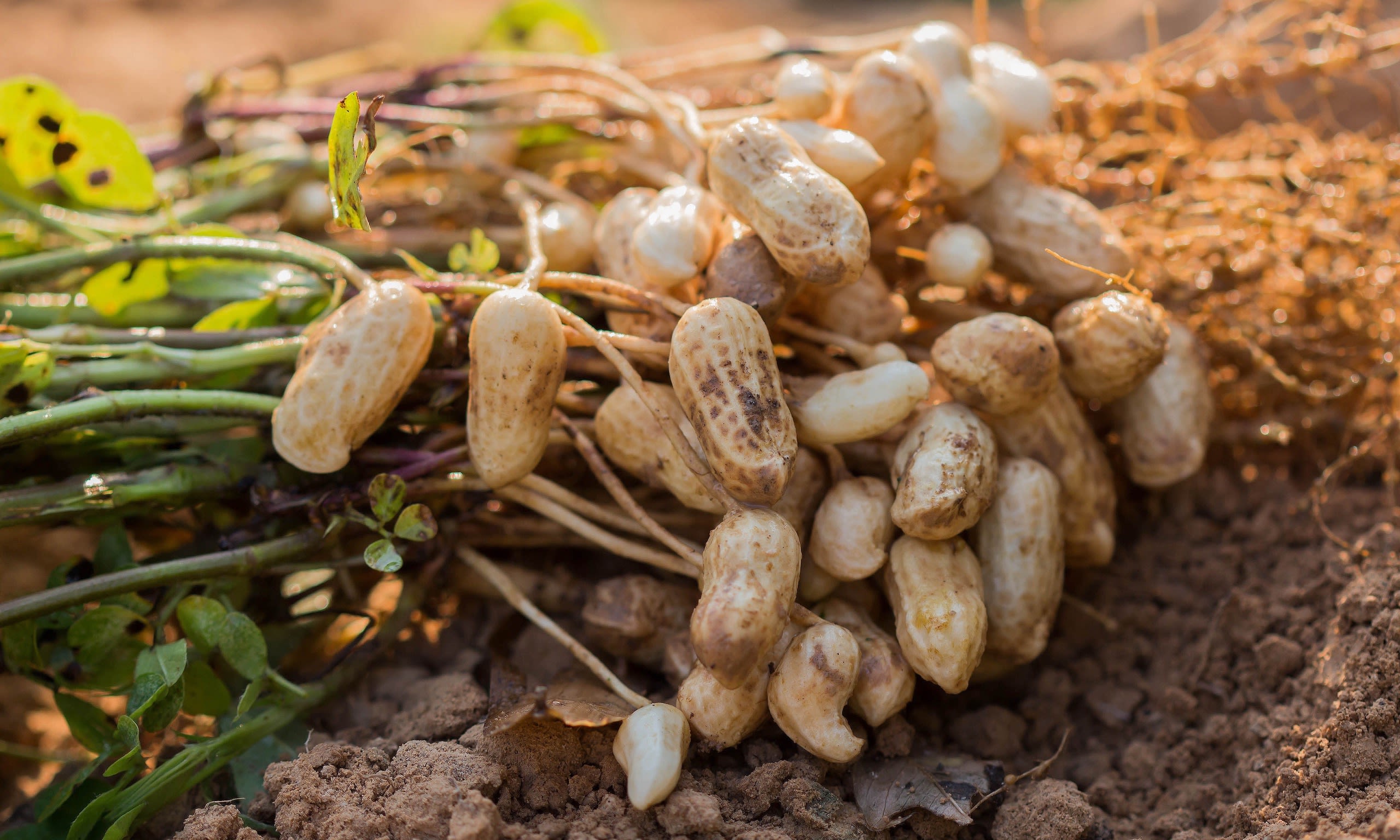
While Clevenger and his team collaborate with groups studying many different crops, their main passion is peanuts. Peanuts are grown in tropical and subtropical regions of the world, mainly by smallholder farmers in Africa and Asia. They are a dietary staple due to their high protein, healthy fats, fiber, and essential vitamins and mineral content. Peanuts are also a crucial cash crop for countless farmers across the globe, particularly in developing nations.
Through his work with the University of Georgia Feed the Future Peanut Innovation Lab, Dr. Clevenger and his colleagues are helping peanut breeders and farmers in Africa incorporate genomic technology into their breeding programs. Peanut breeders across Africa submitted thousands of their best peanut lines from their breeding programs through a collaborative network called the Groundnut Improvement Network for Africa (GINA). All of the lines were compiled into a core collection of 300 lines representing the genetic diversity of top lines from ten breeding programs across nine African countries.
Using the representative set of genomic information, the team has already identified genetic markers for a devastating disease called groundnut rosette disease. Caused by a viral infection, groundnut rosette disease reduces pod yields by up to 100 percent. The researchers are now studying and validating the genetic markers to develop them into routine assays for future genomics-assisted selection for resistance.
That is just one of many success stories that will come from this powerful collection of genetic data. This unique model of combining local expertise with cutting-edge technologies like genetics and new breeding methods will dramatically improve the quality and yield of peanuts in Africa.
“I am so grateful for the part my lab is playing in the Groundnut Improvement Network for Africa. A main driver for my research is making sure no children go hungry. In Africa, peanuts are a major dietary and economic staple, and crop loss due to climate change or emerging pests can leave entire communities struggling to find their next meal. By contributing our genetic expertise to the GINA dataset, we can add an extra layer of value to the collaborative sharing of peanut lines between breeders in distant countries. This will hopefully open up new avenues of beneficial genetics they can tap into to create resilient, adaptable peanut lines.”
Josh Clevenger, PhD
Faculty Investigator


Published March 19, 2024

